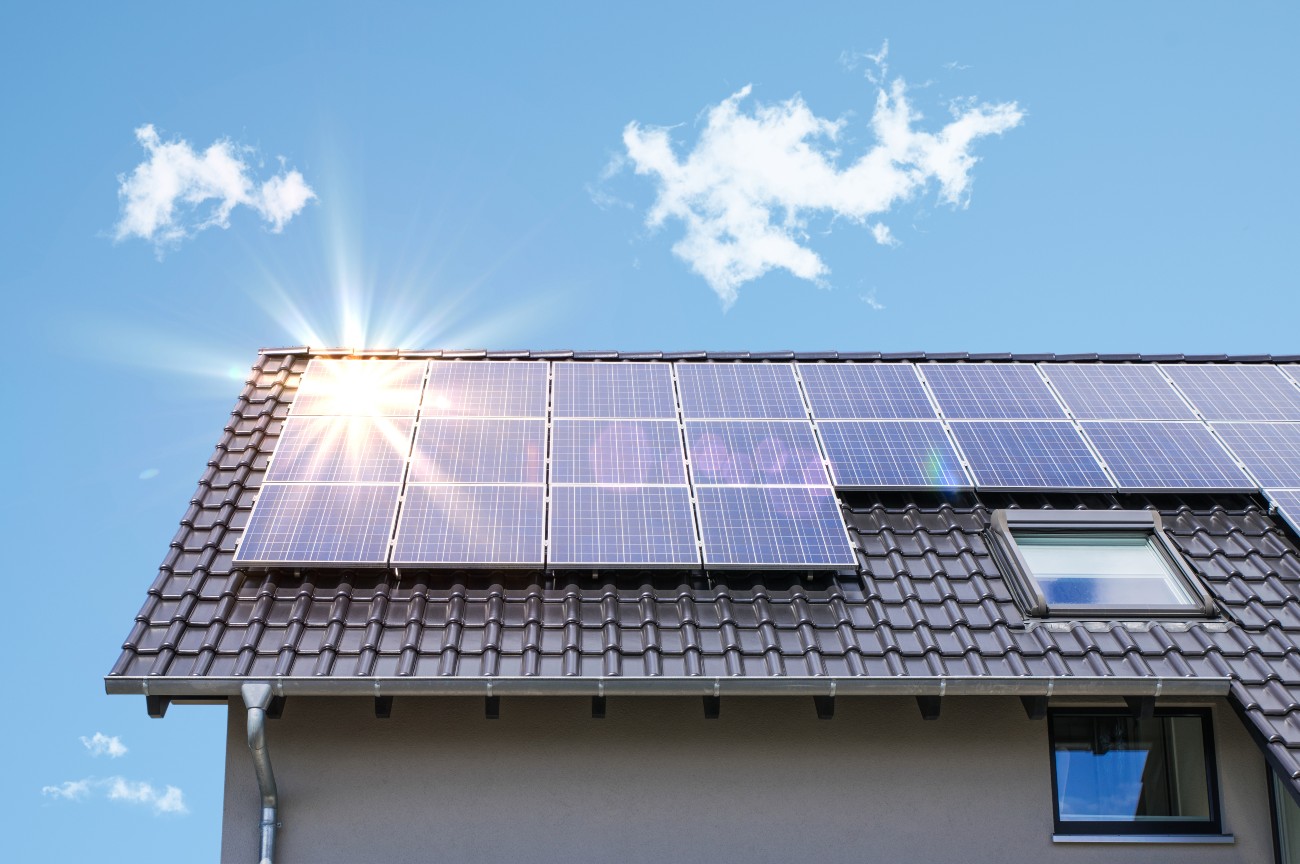Solar panels are quickly becoming more popular among homeowners and for good reason. There are many advantages you can gain when making the switch to solar power. This eco-friendly alternative to fossil fuels produces less carbon emissions, can add property value to your home, and have you spending less money on electricity in the long term.¹ Search online to find out what benefits are to come when you ditch fossil fuels for solar panels.
Unfortunately, the price to install solar panels might be stopping you from getting them installed. But there are ways to save money, which you can learn more about with an online search.
 Alessandro28 / Shutterstock
Alessandro28 / ShutterstockHere’s how you can potentially pay nothing to have solar panels installed at your home.
The Cost of Solar Panels
Solar panels are a worthwhile investment that has long term value to the environment and your wallet. After deciding to start using solar energy, you will have to pay for installation and actually purchase the equipment.
Consumer Affairs reports that the average cost to install solar panels in the U.S. is about $12,000 after federal tax incentives.² According to Home Guide, the averages of what you could pay to install solar panels based on the size of your house are:³
- 1,000 Square Feet: $4,760 to $5,950
- 1,500 Square Feet: $7,140 to $8,925
- 2,000 Square Feet: $9,520 to $11,900
- 2,500 Square Feet: $11,900 to $14,875
- 3,000 Square Feet: $14,280 to $17,850
The price will depend on things like the capacity, efficiency, and where you live. For example, the starting cost to install a 6-kW system in Kentucky is $13,101. Whereas in Hawaii, it will cost $19,560.
What’s great is that in the long term you will end up spending less money on electricity. While the upfront cost for solar panels can be off putting, there are ways around it through money-saving incentives and rebates.
How to Save Money on Solar Panels
Federal Tax Credit
If you get a solar panel installed, then you are entitled to tax credits from the federal government. The federal solar tax credit is something that can be claimed on income taxes for a percentage of the cost of a solar panel system.
For solar systems installed and placed in service in 2021, you can claim 22 percent credit and there is no maximum amount that can be claimed.⁴ As long as you bought the solar panels or are currently paying it off through financing, you are eligible for the tax credit.
The expenses that are included for tax credit are:
- Solar PV panels or PV cells used to power an attic fan;
- Contractor and labor cost for preparation and installation;
- Balance-of-system equipment;
- Energy storage devices that are charged exclusively by solar PV panels, and;
- Sales taxes on eligible expenses.
Solar Loans
Rather than paying thousands of dollars up front for a solar panel system, why not pay it off in small monthly installments? That’s possible with solar loans.
EnergySage says you can own the system with zero dollars down and potentially at a lower cost than what you’re paying for monthly electric bills.⁶ And since you own the system, you’re still eligible for rebates and incentives.
Power Purchase Agreements
According to EnergySage, you could save anywhere from 10 to 30 percent on electricity by not actually owning your solar panels. Instead, a power purchase agreement (PPAs) involve third-party ownership. That party installs the solar panels at your home, then sells you the electricity at a predetermined rate.
You won’t be eligible for government tax credits or incentives with PPAs. But by not owning the system, you won’t have to dish out thousands of dollars to own. It also means you are not responsible for maintenance or monitoring the solar panel system. That responsibility is up to the third-party owner.
Learn More About Solar Panels Online
There are both environmental and economic advantages to having your home powered by solar panels. You can reduce your impact on the environment, while saving money on electricity in the long run.
You don’t necessarily have to purchase the solar panel system up front. You could opt for a solar loan or even sign up for a PPA. Both of these options allow you to enjoy solar energy, without paying thousands of dollars for installation.
If you decide to purchase a solar panel system, then you are entitled to federal tax credit. This incentive gives you money back towards your investment. To get started, search online and find a solar energy company near you to learn more.